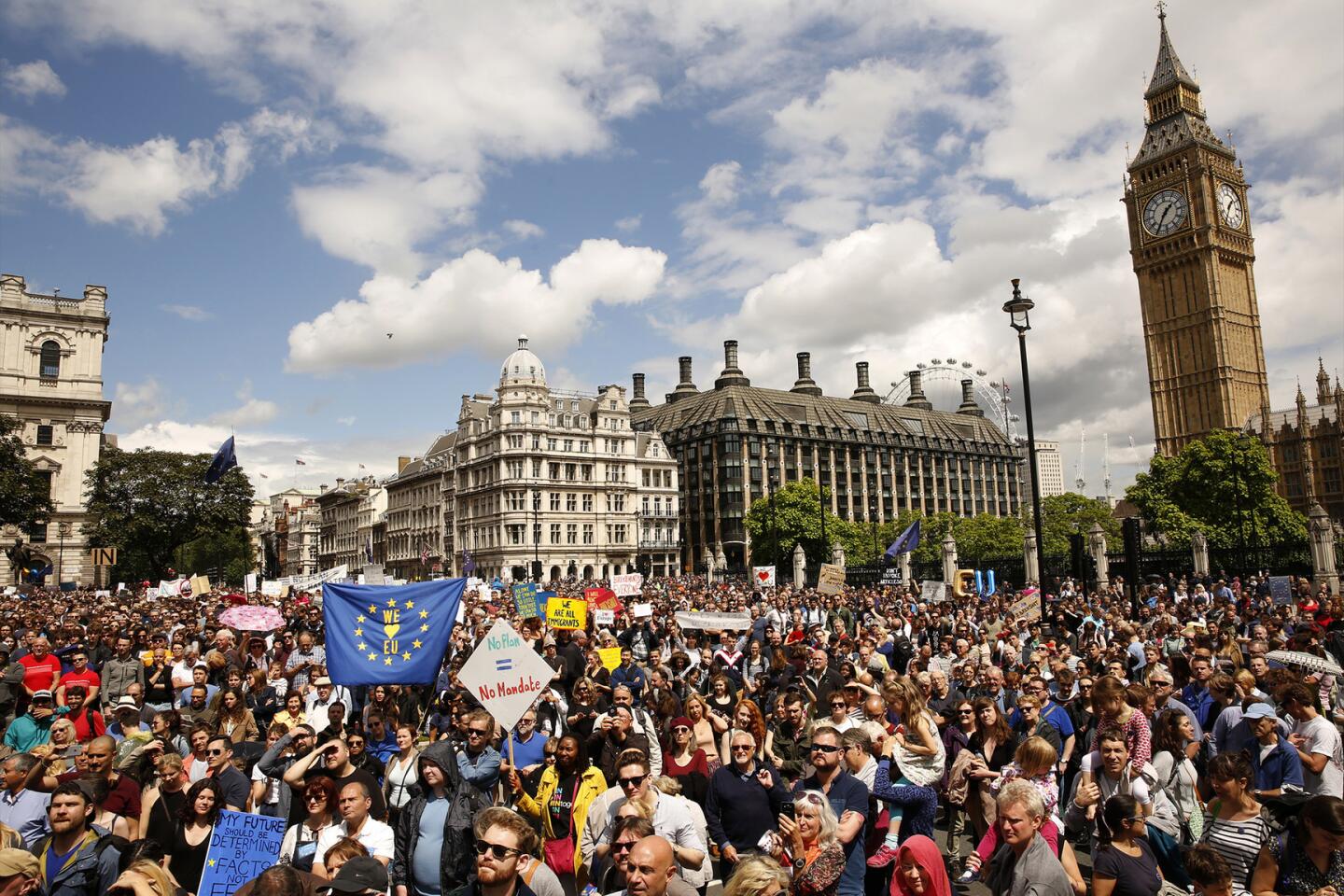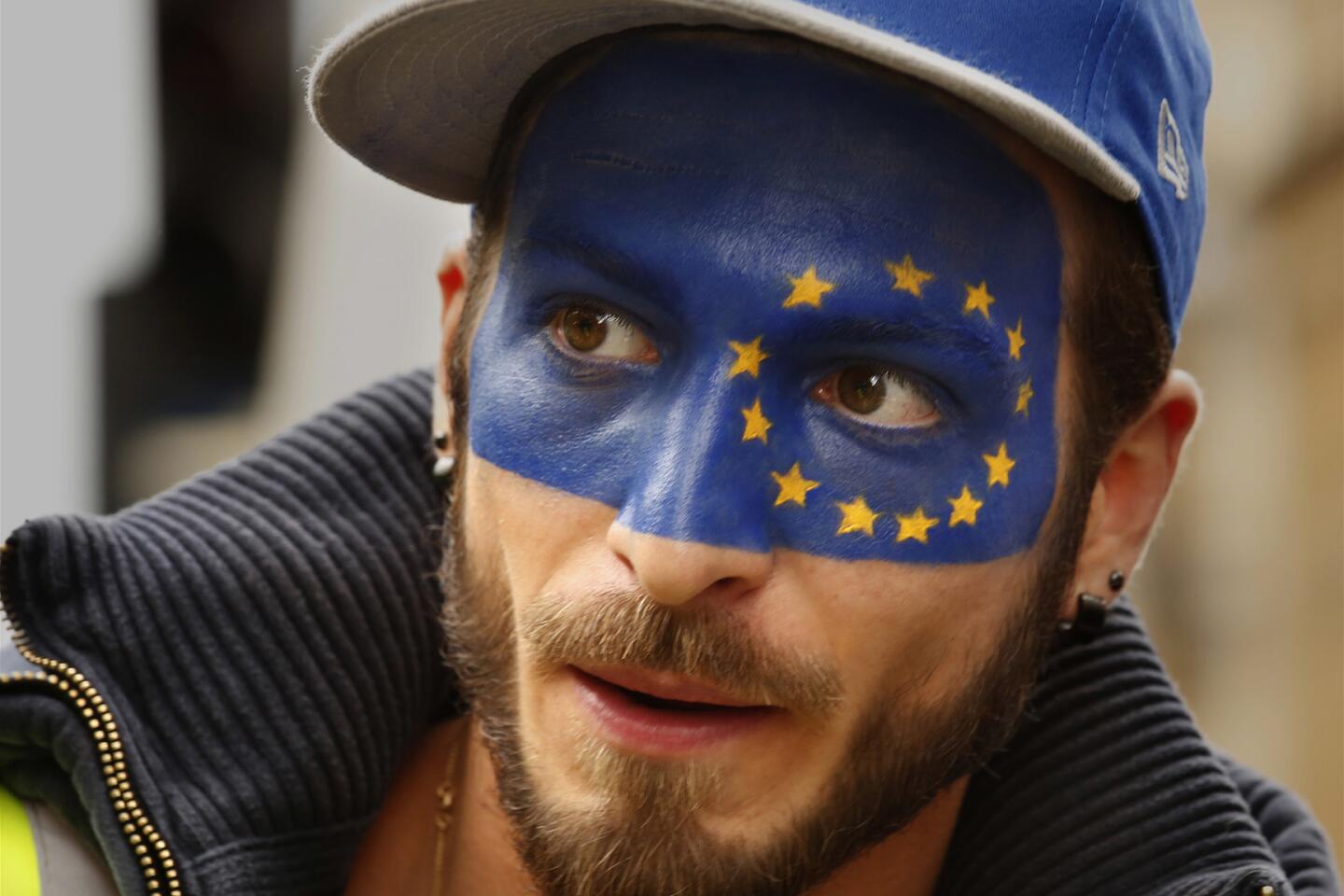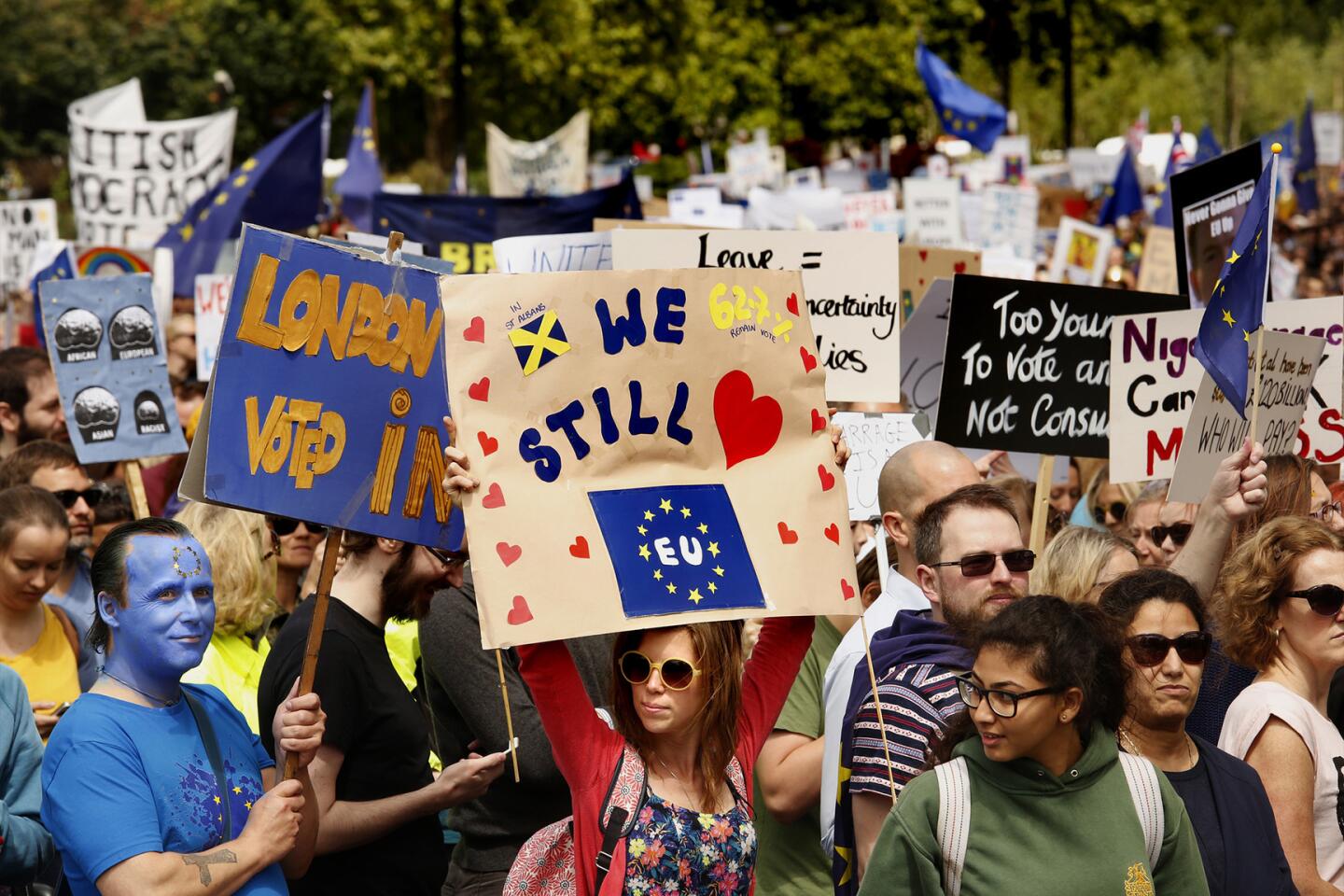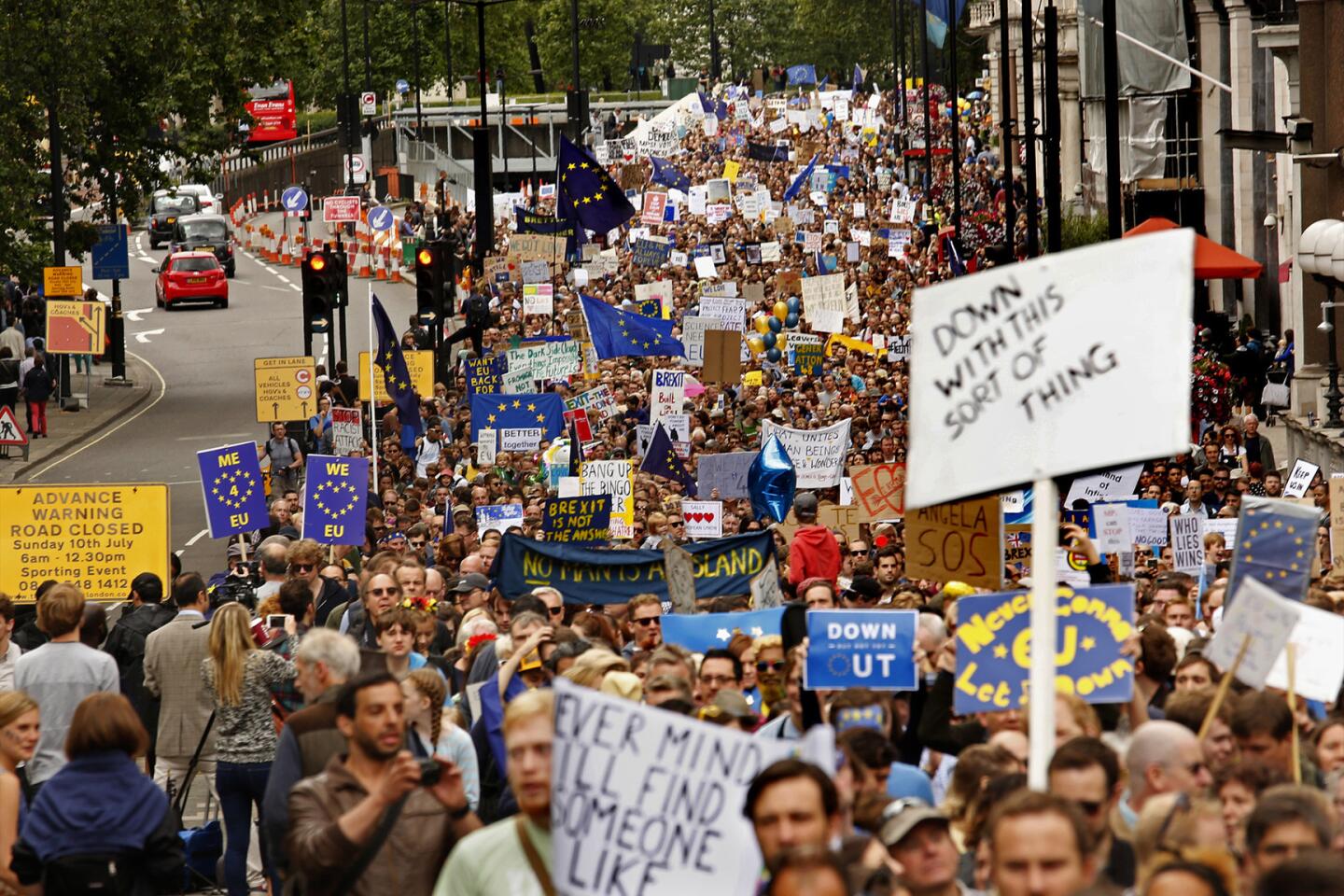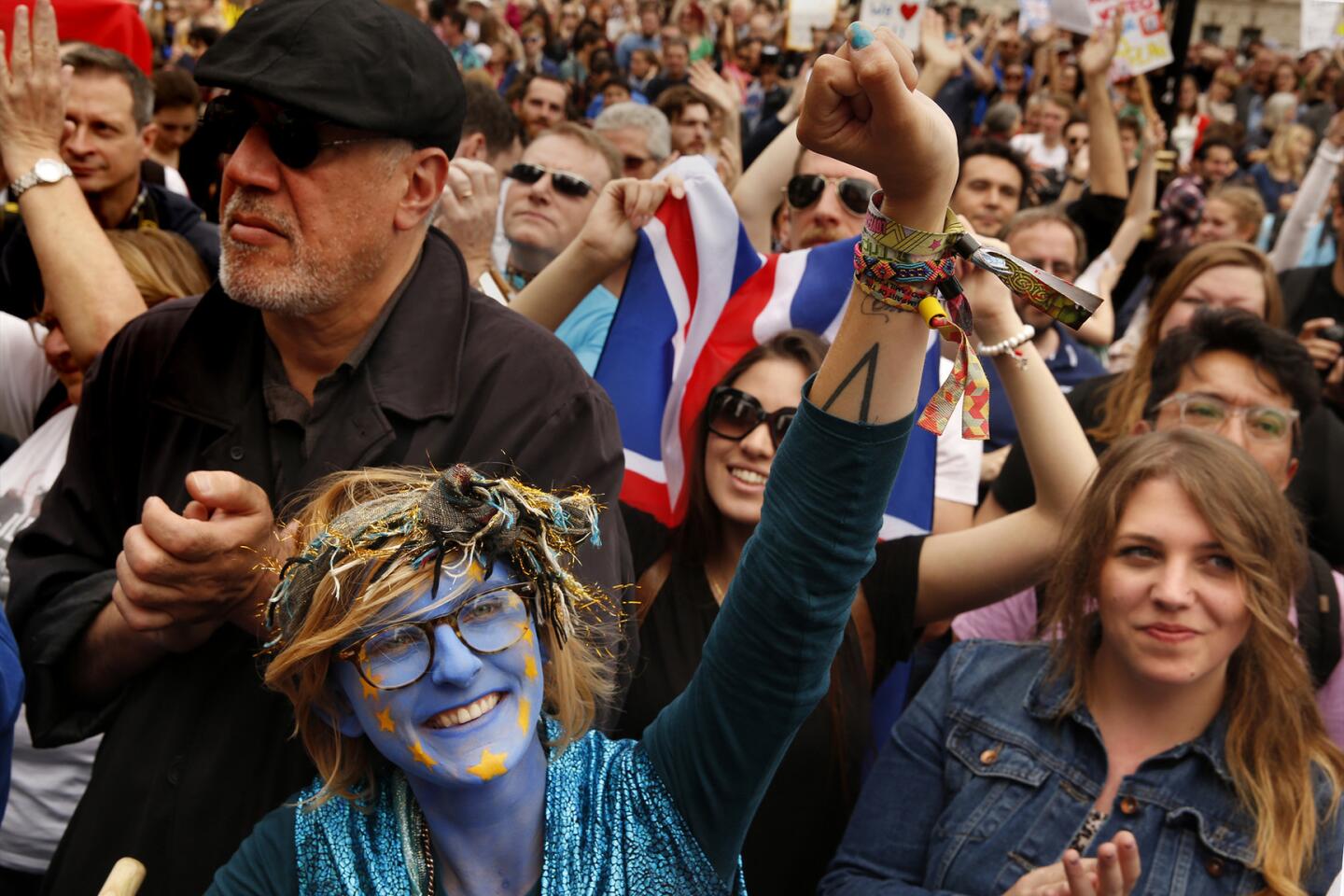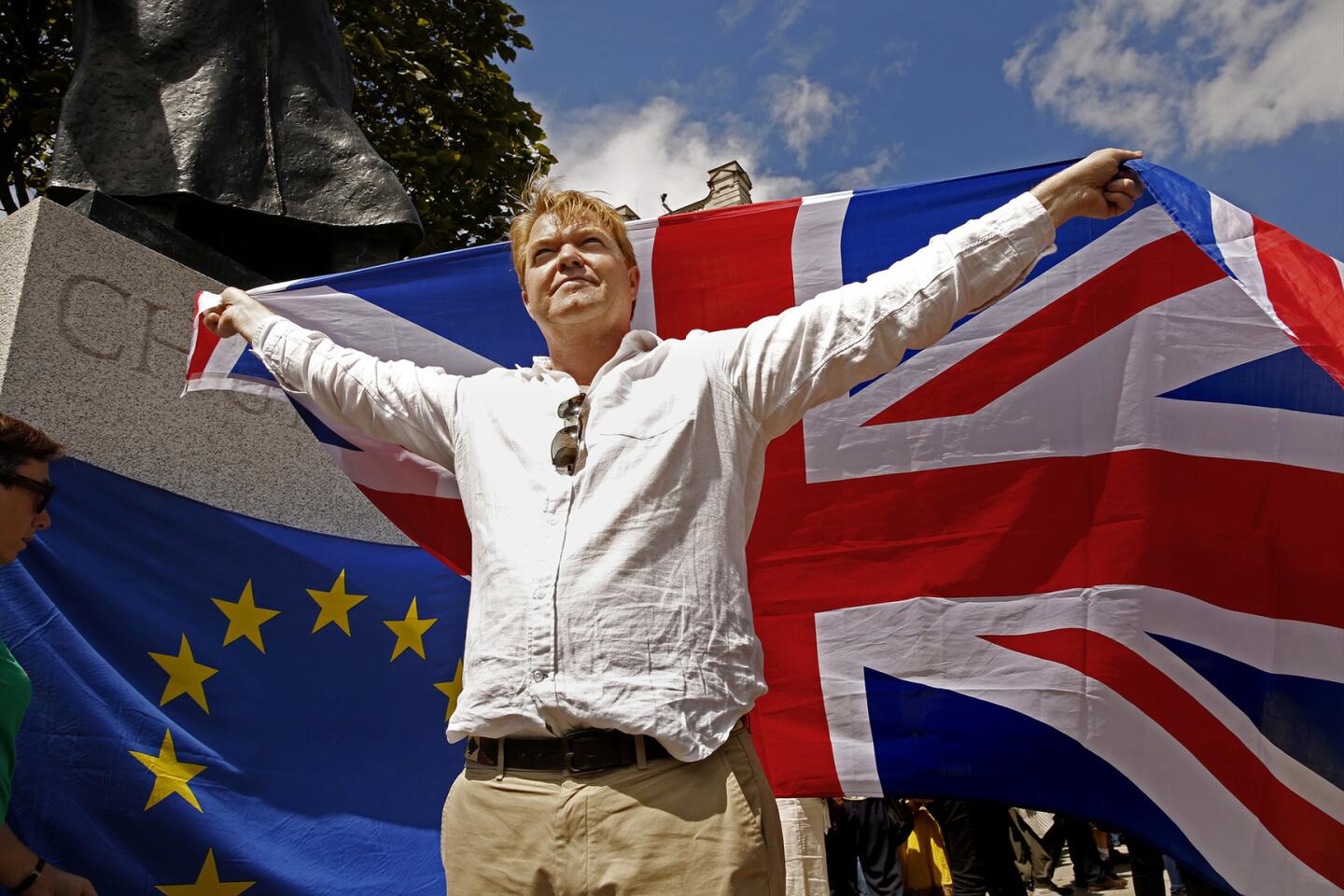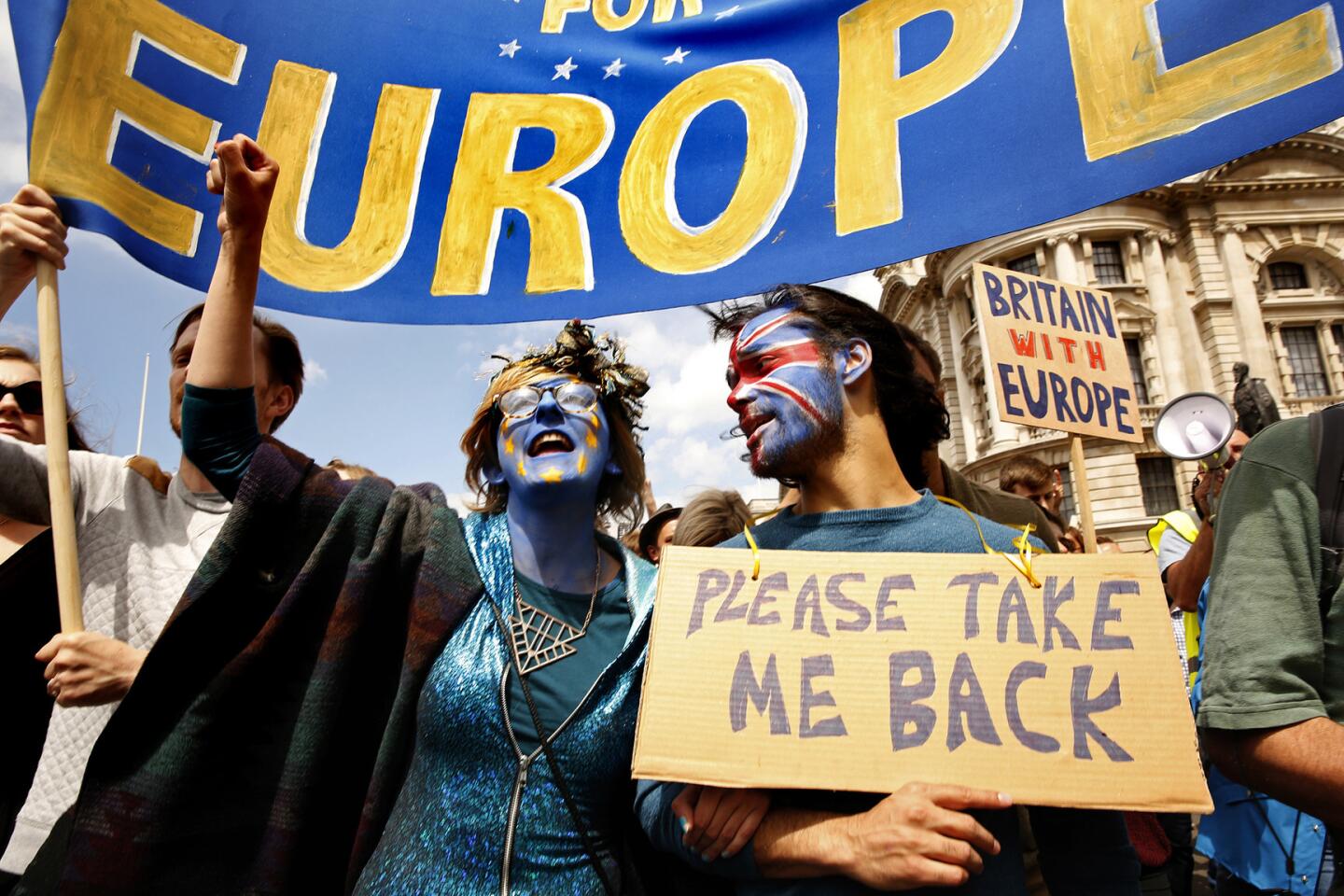Thousands march in London to protest ‘Brexit’ vote
- Share via
Reporting from London — Tens of thousands of people, some waving French baguettes and chanting, “Hell no, we won’t go,” took to the streets of London on Saturday to express their anger at Britain’s referendum decision to leave the European Union.
Holding banners aloft that both expressed their love for Europe (“Can’t live without EU”) and contempt for the political leaders who led the Leave campaign (“The lying cockwombles”), the protesters marched two miles through the capital to Parliament Square. Yet more signs expressed dismay (“Our future has been stolen”), solidarity (“Bridges not walls”) or humor (”No Brex please, we’re British”).
Demonstrators sang songs, stopped traffic and encouraged passing cars to honk their horns in support. Some decorated their faces like the EU flag — blue with gold stars. In a salute to the continent, some signs used the French word for cheese, saying “Fromage not Farage,” a reference to the British Independence Party Leader Nigel Farage who is staunchly anti-EU.
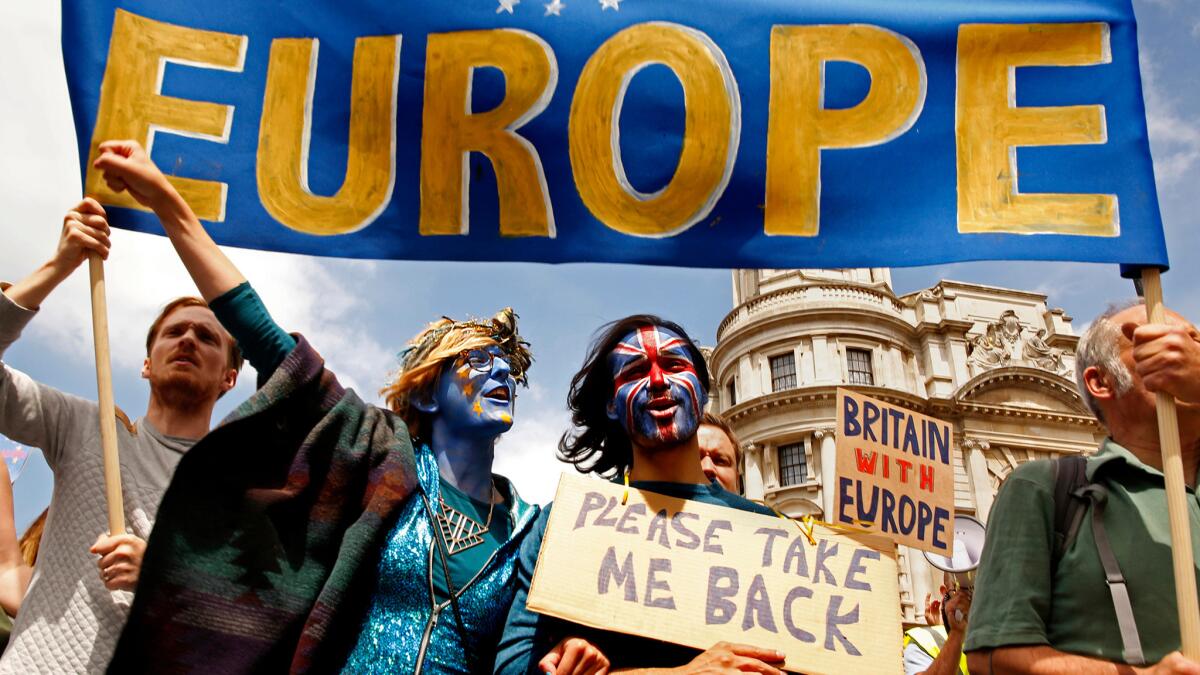
But it was unclear what effect their protest would have beyond being cathartic for those on the losing side since more than 46.5 million people cast ballots in the June 23 referendum, and 51.9% voted to leave, compared with 48.1% who voted to remain.
“It’s very disappointing,” said Jade Braithwaite, 21. “The referendum was a vote about the future, and the young people of Britain feel we are being forced into a future that we deliberately voted against. We are worried that the values we were raised with as young Britons, values of unity and progression, are being thrown out by this referendum.”
London voted heavily to remain in the EU as did 75% of voters ages 18 to 24. By contrast, 61% of voters over 65 favored the so-called Brexit. But the crowd at Saturday’s rally did not reflect those voting patterns. There were students, families, retirees and many who said they never normally attended protests but felt compelled to march.
“I’m usually very much on the sidelines. I’m certainly not a banner waver,” said Sue Carpenter, 50, a filmmaker from London. “But I woke up the morning after the referendum first of all feeling completely dismayed. Then I met all my European friends who said they didn’t feel they were welcome. These are people who have lived in this country a long time. I thought this is really bad.”
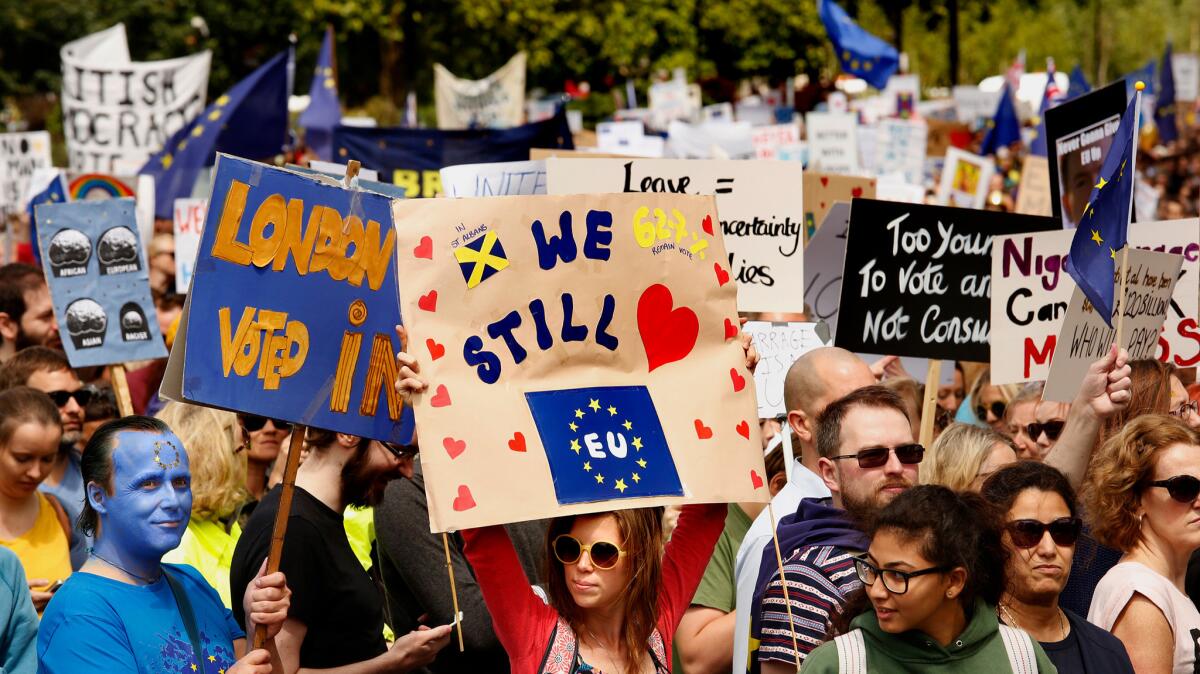
This was the first major protest since the referendum result sent shock waves through the financial markets. Those marching said they hoped to sway political leaders who do not legally have to enforce the referendum result, and vowed to keep protesting in coming weeks and months.
Aside from the protests on the ground, a petition calling for a second referendum has also amassed more than 4 million signatures, making it the largest in British history. While it may force a debate in Parliament, and some voters have spoken of their regret — or “Bremorse” — for voting to leave, there is little sign a second referendum will actually happen.
And Daniel Hannan, a Conservative member of the European Parliament, tweeted a warning that the pro-Brexit side would not be silenced easily. “A gentle reminder, Remain friends, that more people voted to leave the EU than have voted for anything else, ever,” he wrote.
When Britain will invoke Article 50 to formally begin withdrawal from the EU is yet unknown, given that both the Conservative and Labor parties have been left in disarray.
Prime Minister David Cameron immediately announced his resignation after the vote and the lead Brexit campaigner, Boris Johnson, said he would not stand for the leadership after his former campaign ally, Michael Gove, withdrew his support and put his own name forward instead.
See more of our top stories on Facebook »
Meanwhile Labor lawmakers passed a vote of no confidence in their leader, Jeremy Corbyn, following what they saw as his lackluster campaigning for the Remain side. The blatant political backstabbing at a time the country needs stability and leadership was another reason why many of the people said they felt it was so important to take to the streets Saturday.
“We are an international laughingstock. This lot are a bunch of jokers,” said Leonie Greene, 43, gesturing toward the Houses of Parliament. She noted that only a day before, ceremonies had taken place to mark the centenary of the Battle of the Somme in World War I, which left more than 1 million men dead or wounded. It was a stark reminder of the importance of European unity.
“They’re making a mockery of how important these issues are,” she added. “They’re making a mockery of this country.”
Boyle is a special correspondent.
ALSO
For thousands of Brits, France is home. But what happens after Brexit?
In Britain, anxiety about immigration started long before the ‘Brexit’ vote
‘Brexit’ campaigner Boris Johnson withdraws from race to become Britain’s prime minister
More to Read
Sign up for Essential California
The most important California stories and recommendations in your inbox every morning.
You may occasionally receive promotional content from the Los Angeles Times.
